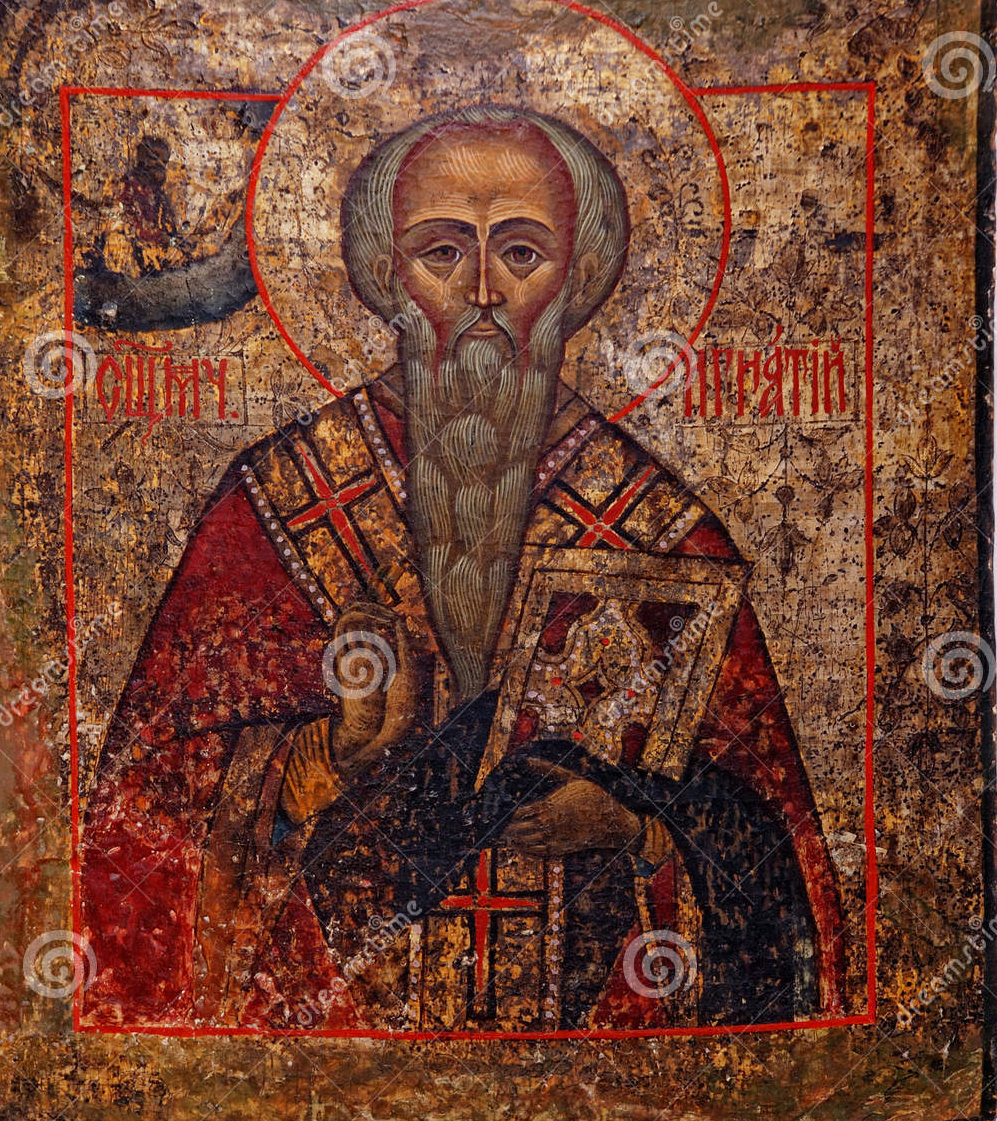Rev. José Mario O. Mandía
jmom.honlam.org
After Clement of Rome, the next Apostolic Father we will discuss is St Ignatius of Antioch. He may have been born around the year 50 AD, in Syria. He was the third bishop of Antioch (its first bishop was St Peter himself), from the year 70 to 107. Pope Benedict XVI explains: “At that time, Rome, Alexandria and Antioch were the three great metropolises of the Roman Empire” (General Audience, 14 March 2007).
St Ignatius was martyred in Rome during Trajan’s reign (98-117), devoured by beasts. It was while he was being escorted by ten guards on his way to Rome that he wrote seven Letters (six to different Christian communities and one to Polycarp, bishop of Smyrna). The most important of these was the one he wrote to the Christian community in Rome. He told them not to do anything to prevent his martyrdom: “I am the wheat of God, and I must be ground by the teeth of wild beasts, that I may become the pure bread of Christ.”
Let us take up some of the salient points of his teaching.
(1) Divine Economy. The core of his theology is the Divine Economy or Economy of Salvation, which includes “creation and the history of salvation after the fall and the missions of the Son and the Spirit, which are continued in the mission of the Church” (CCC 257). God prepared his people through the prophets, and crowned it through Jesus Christ. Ignatius wrote: “Jesus Christ is our only teacher, of whom even the prophets were disciples in the Spirit and to whom they looked forward as their teacher” (Letter to Magnesia).
(2) Christology. St Ignatius clearly teaches that there are two natures in Christ: human and divine. “He is really of the line of David according to the flesh, and the Son of God by the will and power of God; was really born of a Virgin, and baptized by John in order to comply with every ordinance” (Letter to Smyrna). He spoke against the Docetist heresy, which denies the human nature and the suffering of Christ.
(3) The Church and the Eucharist. He calls the Church, “the place of sacrifice” (Letters to Ephesus, Tralles and Philadelphia).
In his Letter to Philadelphia, he writes: “Take care, then, to partake of one Eucharist; for one is the Flesh of our Lord Jesus Christ, and one the cup to unite us with His Blood, and one altar, just as there is one bishop assisted by the presbytery and the deacons, my fellow servants.” Note how he distinguishes the members of the hierarchy here.
In his Letter to Smyrna, he affirms: “The Eucharist is the Flesh of our Savior Jesus Christ, which suffered for our sins, and which the Father in His loving kindness raised from the dead.”
(4) Church Hierarchy. In the Letter to Magnesia, Ignatius writes: “I exhort you to strive to do all things in harmony with God: the bishop is to preside in the place of God, while the presbyters are to function as the council of the Apostles, and the deacons, who are most dear to me, are entrusted with the ministry of Jesus Christ.” The bishop is the teacher of the faithful. He is also the high priest of the liturgy.
(5) “Catholic.” We will recall that Acts 11:26 reports that it was “in Antioch the disciples were for the first time called Christians.” And it was Ignatius, bishop of Antioch, who first used the word “catholic” or “universal.” He wrote to Smyrna: “Where the bishop appears, there let the people be, just as where Jesus Christ is, there is the Catholic Church.”
(6) Matrimony and Virginity. Following Saint Paul, he compares marriage to the bond between Christ and His bride, the Church. At the same time, he praises virginity (cf. Letter to Polycarp).
(7) Roman Primacy. His Letter to Rome stands out from the rest because it shows how Ignatius regards Rome highly. He talks of the Church which “presides in the chief place of the Roman territory; a church worthy of God, worthy of honor, worthy of felicitation, worthy of praise, worthy of success, worthy of sanctification, and presiding in love, maintaining the law of Christ, and bearer of the Father’s name: her do I therefore salute in the name of Jesus Christ, the Son of the Father.” This Letter clearly complements St Clement’s Letter to the Corinthians.
(8) Imitation of Christ. Following Saint Paul and Saint John, St Ignatius teaches that imitation of Christ does not only mean observing the moral law and living according to the Lord’s teachings. It also means letting Him dwell in us and conforming ourselves to His Passion and Death. Thus, he wrote the Romans: “Permit me to be an imitator of my suffering God.” Our union with Christ then becomes the root and source of our union with all Christians.


 Follow
Follow


